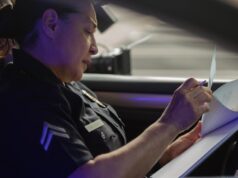Car accidents can be stressful, and the medical bills that follow can quickly add up. Thankfully, auto insurance can help cover these costs, depending on the type of coverage you have. Understanding how your insurance handles medical expenses can help you navigate the aftermath of an accident with more confidence.
Medical Payments Coverage
Medical Payments Coverage, often referred to as MedPay, is a type of auto insurance that covers medical expenses for you and your passengers, regardless of who is at fault in an accident. It can help pay for hospital bills, doctor’s visits, surgery, and other necessary medical treatments. MedPay is available in many states as an optional addition to your policy.
Personal Injury Protection (PIP)
In states with “no-fault” insurance laws, Personal Injury Protection (PIP) coverage may be required. PIP covers medical expenses for you and your passengers, even if you were at fault in the accident. It often includes a broader range of expenses, such as lost wages, rehabilitation, and sometimes even funeral costs. Unlike MedPay, PIP may also cover non-medical costs related to the accident.
Liability Coverage and Medical Bills
Liability coverage is typically used to cover medical expenses for others if you are at fault in an accident. It will pay for the medical bills of the injured party, including hospital stays, doctor visits, and any necessary treatments. However, it does not cover your own medical expenses; that’s where MedPay or PIP comes into play.
Health Insurance and Auto Insurance
If you don’t have MedPay or PIP coverage, your personal health insurance may step in to cover medical expenses. However, this can depend on the terms of your health insurance policy, and it may not cover everything. If your health insurance does not cover all the expenses, auto insurance may help fill the gap.
The Role of Uninsured/Underinsured Motorist Coverage
If the other driver is at fault and does not have enough insurance or any insurance at all, your Uninsured/Underinsured Motorist (UM/UIM) coverage may help cover your medical expenses. This is particularly useful in situations where the other party is either unidentifiable or lacks sufficient insurance to pay for your treatment.
Coverage Limits
It’s important to be aware that each type of insurance has its own limits. For example, MedPay may have a set maximum amount it will pay out, so you may need to pay out-of-pocket if your medical bills exceed that limit. The same applies to PIP coverage or liability insurance, so it’s essential to understand the details of your policy to avoid unexpected costs.
Claim Process and Timeliness
To ensure that your medical expenses are covered, it’s important to file a claim with your insurance provider as soon as possible after an accident. Delays in reporting an accident can result in delayed payment or even denial of coverage. Keep track of all medical bills and treatments to provide clear documentation when filing a claim.
Auto insurance plays a critical role in covering medical expenses after an accident, but understanding the various types of coverage and their limitations is key. Whether through MedPay, PIP, or liability coverage, having the right insurance can help ease the financial burden of medical bills after an accident.









